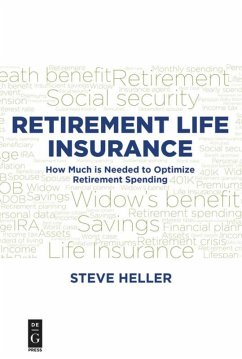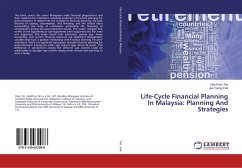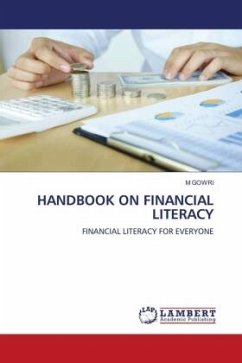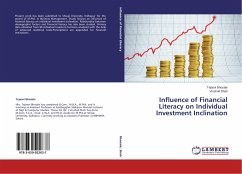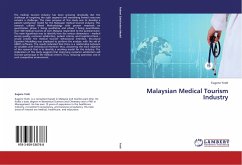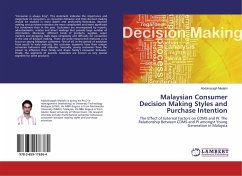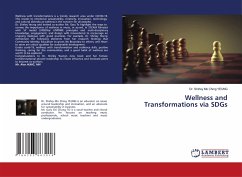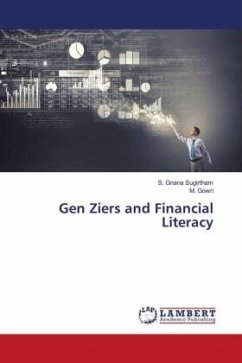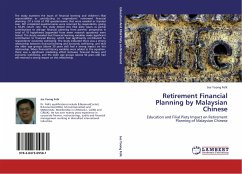
Retirement Financial Planning by Malaysian Chinese
Education and Filial Piety Impact on Retirement Planning of Malaysian Chinese
Versandkostenfrei!
Versandfertig in 6-10 Tagen
39,99 €
inkl. MwSt.

PAYBACK Punkte
20 °P sammeln!
The study examines the issues of financial learning and children's filial responsibilities as contributing to respondents' retirement financial planning. Of a total of 700 questionnaires that were emailed or handed over, 381 completed questionnaires were returned by respondents, giving a 54.4% return rate. The study delved into filial piety issues as partial contributions to old-age financial planning from parents' perspective. A total of 10 hypotheses (expanded from seven research questions) were tested. The study revealed that financial learning variables made significant contribution to fin...
The study examines the issues of financial learning and children's filial responsibilities as contributing to respondents' retirement financial planning. Of a total of 700 questionnaires that were emailed or handed over, 381 completed questionnaires were returned by respondents, giving a 54.4% return rate. The study delved into filial piety issues as partial contributions to old-age financial planning from parents' perspective. A total of 10 hypotheses (expanded from seven research questions) were tested. The study revealed that financial learning variables made significant contribution to financial literacy, which had significantly contributed to respondents' economic well-being. The study indicated there was a strong relationship between financial learning and economic well-being, and that the older age groups (above 50 years old) had a strong impact on this relationship. When financial literacy variables were added to the equation, there was a significant mediating effect between financial literacy and economic well-being, and the older age groups (above 50 years old) had still retained a strong impact on this relationship.





